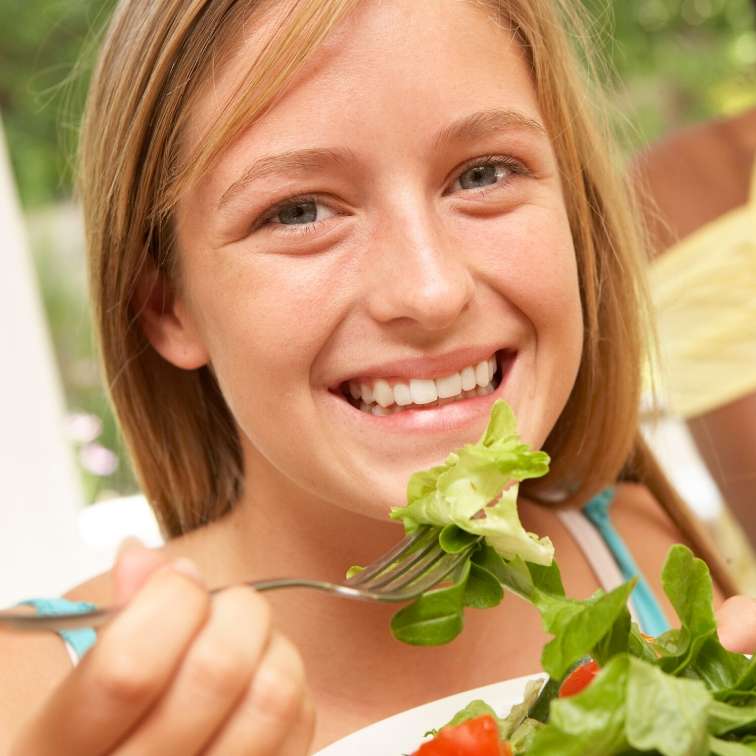
Nutrition for Teen Athletes
Nutrition for teen athletes is especially difficult because of competing demands from school, training, family, and friends. A teen swimmer is on a different schedule from the rest of the family, and may be limited by the food choices offered at school. Add in the temptations of fast food and sugary snacks when socializing with friends, and the chance to stay on track nutritionally takes a turn for the worse. Help your teen athlete make good choices that will give them a competitive edge in and out of the pool.

Critical Growth Period
Beyond staying on top of their athletic performance, teens need to pay attention to nutrition during this critical growth phase in their lives. Adolescents are developing their bodies and if they want to reach their full potential, they need to give their bodies the nutrients it needs to grow. Teens will experience adverse effects like fatigue and injury when their nutritional needs are not being met.
What Does a Teen Need?
In general, adolescents should pay attention to getting a good mix of proteins, fats, carbohydrates and vitamins and minerals. These three macronutrients should provide the calories that a teen swimmer needs to fuel through the demands of school and practice, while the vitamins and minerals will help with the overall working of the body.
Protein rebuilds and repairs your muscles after an intense meet or practice, but protein also preps the body to make sure the right amino acids are available to your muscles during the workout. For this reason, protein is needed both before and after your workout. Choose lean chicken, nut butters, protein shakes, and dairy products to keep your protein intake healthy.
Carbs are an important nutrient for any teen athlete because they are the most energy efficient fuel source. This energy source that provides power and endurance is a cornerstone for swimmers who have long, vigorous workouts. Choose healthy carbs like whole grains, whole wheat pasta, rice, and fruits to keep your performance plan on track.
Don't forget about healthy fats. Fats help your body use vitamins and phytochemicals, and are the main fuel source for long periods of exercise. Fats are also needed to help access the stored carbohydrate to keep your energy levels in check. Enjoy healthy fats in small amounts, like nuts, whole milk, fatty fish, and avocados, and avoid them before a workout since they'll upset your stomach.
And finally, don't forget about making sure you get all the vitamins and minerals the body needs. Things such as calcium and vitamin D3 to help with bone growth and strength.
How Much Does a Teen Need?
Dietary guidelines state that active girls ages 9 to 13 require around 1,800 to 2,200 calories per day, while active boys ages 9-13 require around 2,000 to 2,600 calories per day. Active female teens aged 14- to 18-year-old require around 2,400 calories, while their male counterparts require 2,800 to 3,200 calories per day. Adolescents who swim daily for an hour or two at practice need more calories than average active teens, so you will need to add calories to your diets to stay healthy. For a two-hour practice, you should add about 1,200 calories to your dietary requirements.

What about Vitamins?
Stock up on vitamins and minerals since our typical American diet and food is absent of the minerals and vitamins that an athlete needs to perform. Pay attention to your iron intake, since iron deficiency is a common problem for athletes, particularly women, vegetarians and adolescents. If iron levels are low, you'll feel tired and low in energy since iron transports oxygen to all parts of the body, including muscles, and helps release energy from cells. Get iron from food sources like lean meat, legumes, and green leafy vegetables. Another neglected mineral is calcium, which helps develop and maintain bone mass which is especially critical for teens whose bodies are still developing. Calcium is found in dairy products and teen athletes should aim for 4 servings a day.
Healthy Choices On the Go
So we know that teens are all over the place; heading from school to practice to parties and everywhere in between. Make healthy choices on the go that don't sabotage your athletic performance. Carry snacks like fruit or protein bars for healthy refueling in between workouts so that you're not tempted by chips, candy, or energy drinks. When you're eating out with friends at fast food spots, opt for sandwiches or burgers wrapped in lettuce and get salad or fruit on the side instead of fries. At Asian and Mexican spots, opt for low-calorie sauces, and get your items grilled instead of fried. And always try to opt for hydrating with water instead of high-calorie sodas or energy drinks.
Adjusting your teen's nutrition plan doesn't have to be difficult. With some planning, eating right can be something that the whole family can do together while putting your teen athlete on the path to success!
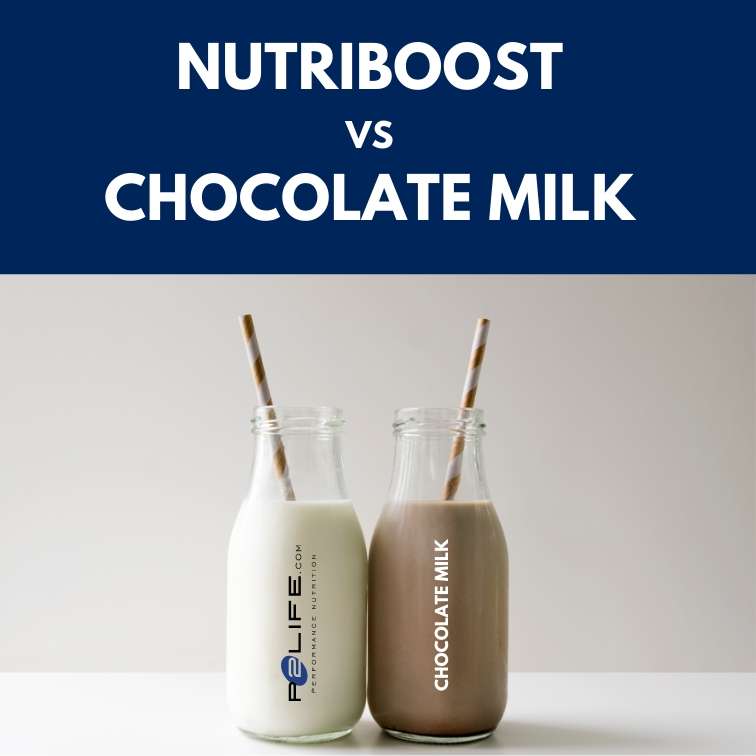
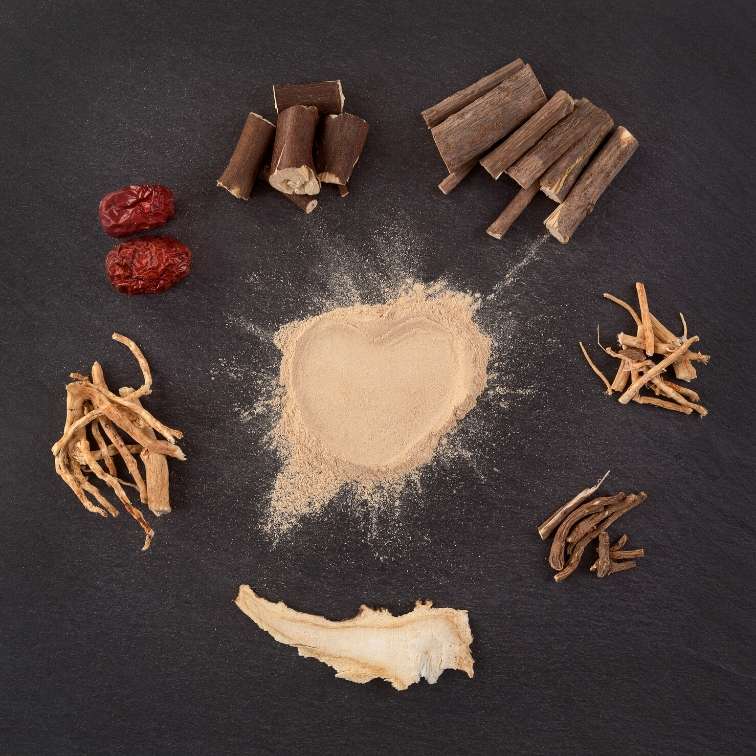






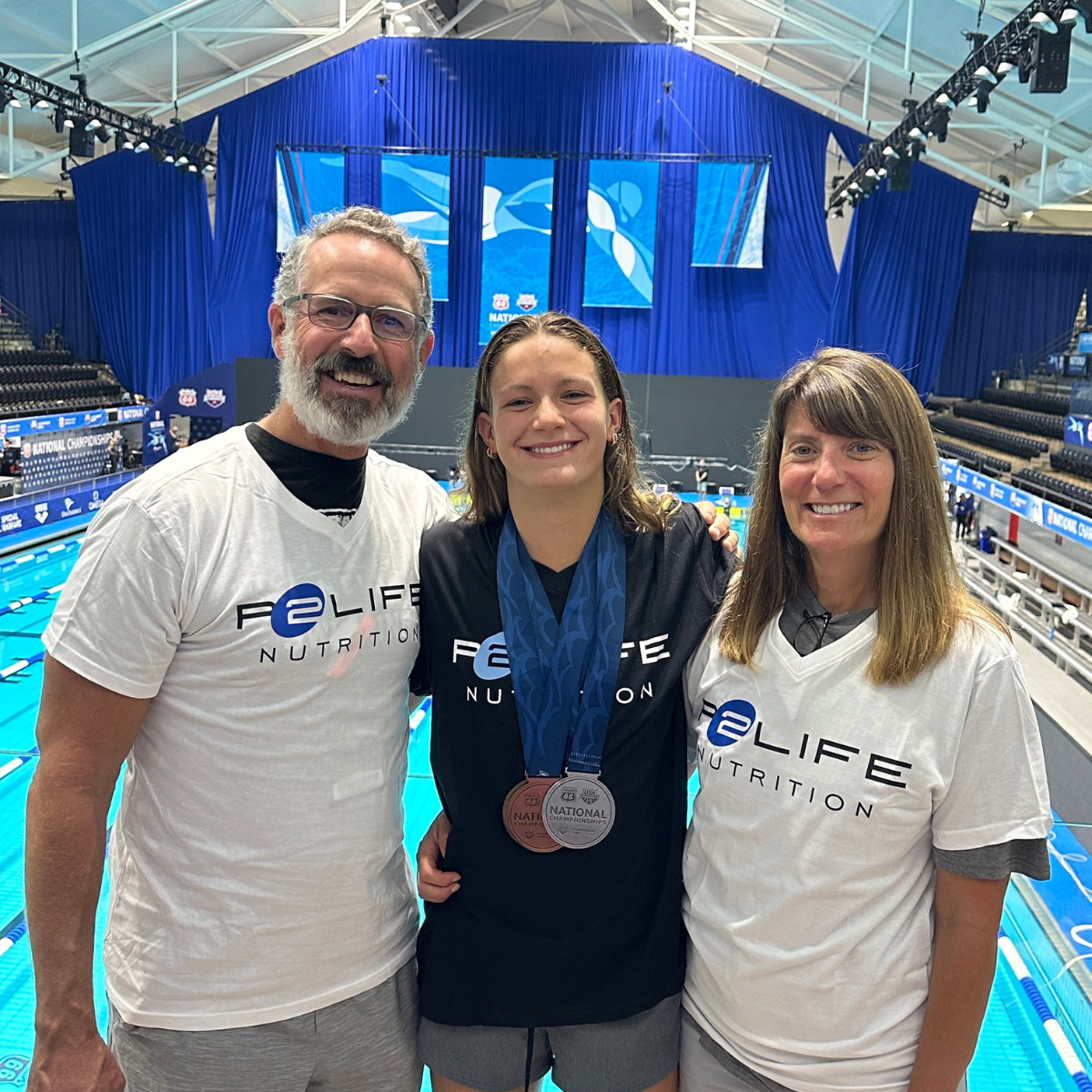
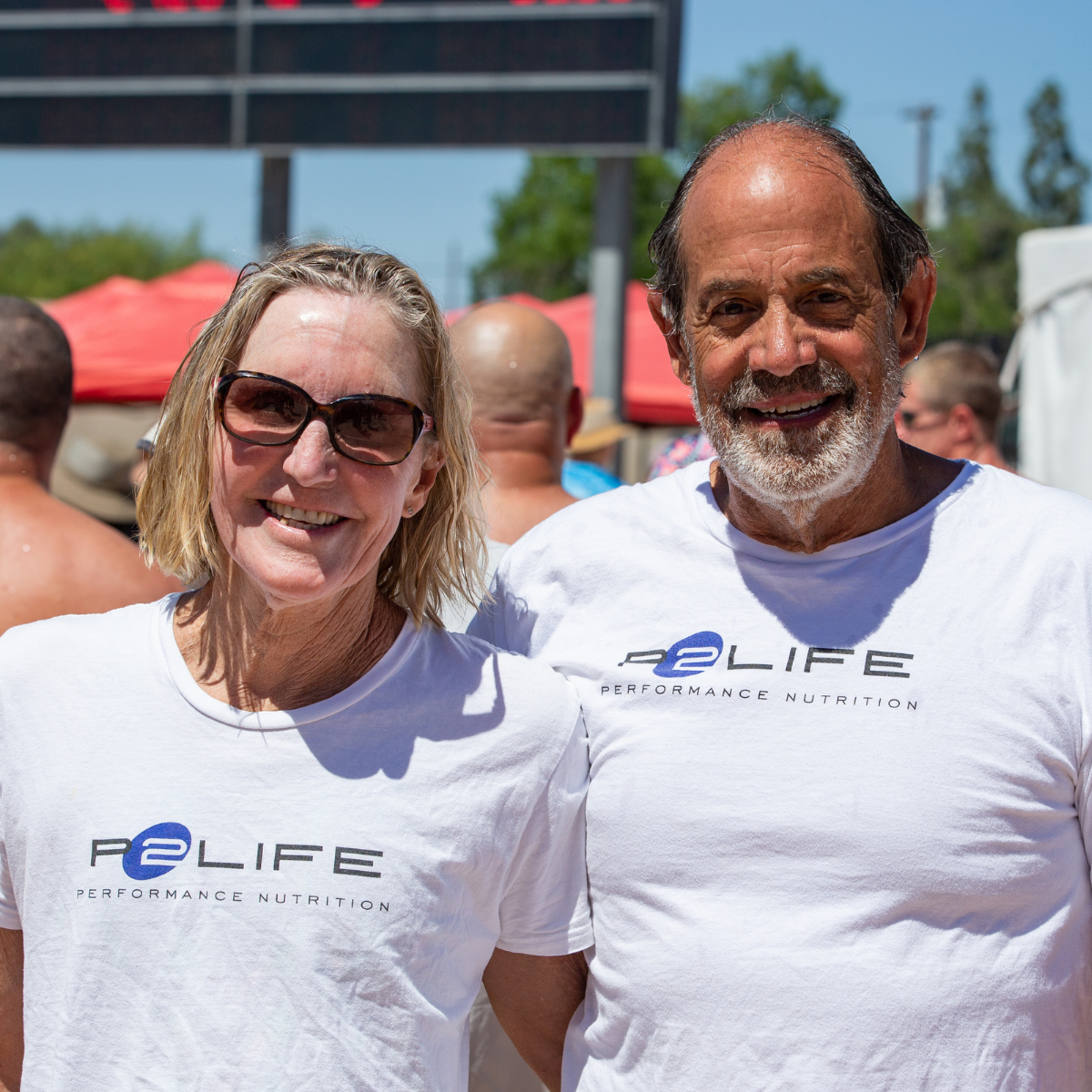
3 comments
My 13 year old son plays comp soccer year around, its very difficult to get him to stay hydrated and eat the correct foods.He play’s in tournaments that consist of 3-4 games in 2 Days.Can you reccomend substitutes for Water and What Carbs & Proteins are best for him?
Joe Dawson
My granddaughter is a varsity basketball player. How many calories does she need to eat the day of a game before 7:00
Judith Louther
My son 13 years old only and his a swimmer. I would like to know what’s the best and safe energy drink and a vitamins supplements? Please and thank you Anna !
Anna
Leave a comment
This site is protected by hCaptcha and the hCaptcha Privacy Policy and Terms of Service apply.